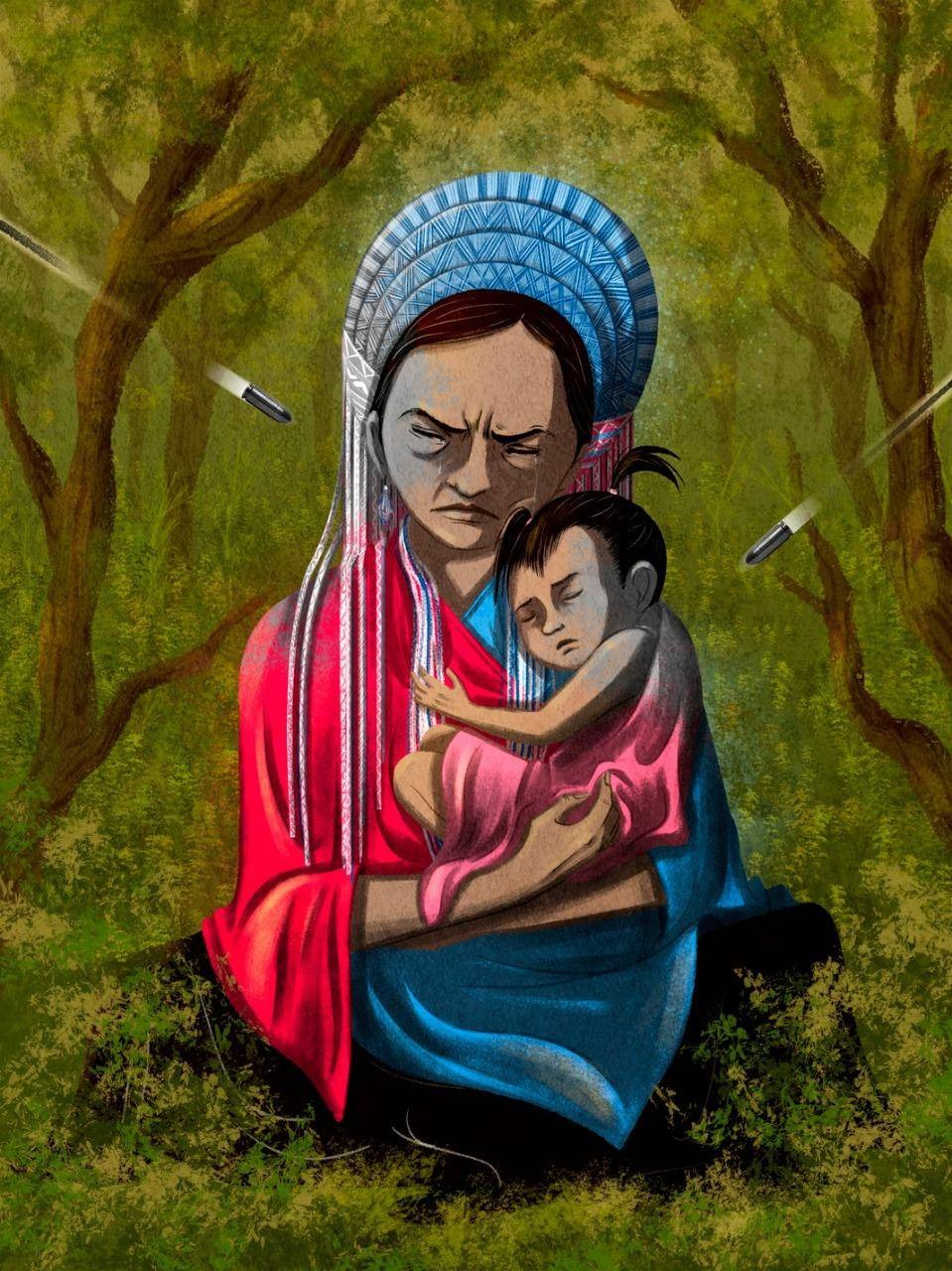Colombia: Complaint to UN mechanisms about the violation of peasants’ rights

Press Release
(Geneva, April 21, 2022) – Civil society organisations, La Via Campesina, CETIM, Friends of the Earth International, FIAN International and FENSUAGRO, submitted a report to the UN special mechanisms to denounce the violations and repression against the Colombian peasantry, in particular the persecution of the National Agricultural Trade Union Federation (FENSUAGRO)[1].
The issue of access to and use of land remains unresolved, perpetuating the circle of violence in Colombia, despite the peace process initiated in 2016 to end the armed conflict there[2]. Beyond the ceasefire between the two parties, the peace agreement contains crucial reforms to address the structural causes of the conflict. Among these reforms, an agrarian plan (point 1 of the agreement) provides for the equitable distribution and redistribution of land to the thousands of peasants who were forcibly displaced by the fighting. These reforms are essential as Colombia is the country with the most inequitable distribution of land in Latin America.
Since 2019, the country has seen an exponential increase in killings of representatives of social movements by paramilitary groups. These murders are connected to conflicts over land, territories, and natural resources: it is estimated that about 80% of the homicides are of social leaders in rural areas. From the signing of the peace treaty in 2016 to March 2022, approximately 1000 peasant leaders were killed.
The main goal behind these massacres is to perpetuate a climate of terror in the country, particularly among peasant communities, indigenous peoples and afrodescendant groups. The objective is to prevent social leaders from questioning the established policy, which favours land grabbing and the extermination of peasant and indigenous life for the benefit of agribusiness interests.
Since its founding in 1976, FENSUAGRO has been the target of political persecution by the state and paramilitary groups; its members have been victims of multiple human rights and international humanitarian law violations during Colombia’s internal armed conflict. Since 2016, at least 57 members of the Federation have been killed and 16 leaders threatened. Despite numerous complaints and requests for protection measures, most of the requests have been ignored and the abuses continue. In this situation, the government has been negligent and has not taken the necessary measures to protect the affected rural communities.
In light of this situation, this latest complaint calls on the relevant UN mechanisms to urge the Colombian state to effectively put an end to and investigate the human rights violations committed against members of FENSUAGRO. It is necessary to establish efficient protection for FENSUAGRO’s members, and more generally for social leaders in Colombia.
In addition, Colombia is urged to implement an effective penal policy that guarantees the dismantling of paramilitary groups and puts an end to their impunity. Finally, the 2016 peace agreement must be respected and with it, the various reforms announced, in particular the ones regarding agrarian reform. This reform must be implemented in light of the United Nations Declaration on the Rights of Peasants, adopted in 2018.
Contacts:
Nury Martinez, Presidente de FENSUAGRO, nury254@gmail.com
Camila Rojas, CLOC, camilarojasviacampesina@gmail.com
Raffaele Morgantini, Representante del CETIM ante la ONU, contact@cetim.ch
FOEI press and communications officer, Madeleine Race, madeleine@foei.org
FIAN
[1] FENSUAGRO is the first Colombian peasant organization and one of the oldest members of the international peasant movement La Via Campesina. It has been fighting for agrarian reform, food sovereignty, peasants’ rights, seeds, and water since 1976.
For decades, amidst Colombia’s armed conflict and political instability, FENSUAGRO members have organized and supported peasants, women, and youth to build dignified lives for their communities and themselves.
[2] The peace agreement signed between the Colombian government and the FARC’s squads (Columbian Revolutionary Armed Forces) on September 26, 2016, was rejected in a referendum on October 2, 2016. The election of President Ivan Duque (an avowed opponent of the peace agreement) in 2018 only weakened the fragile balance proposed by the agreement.
